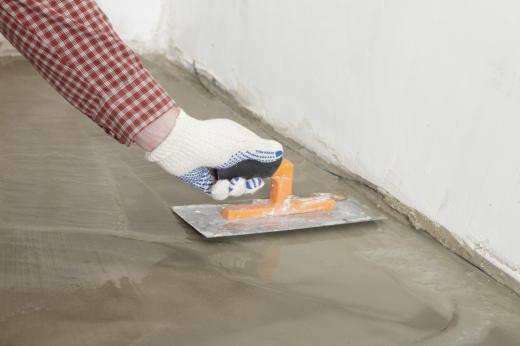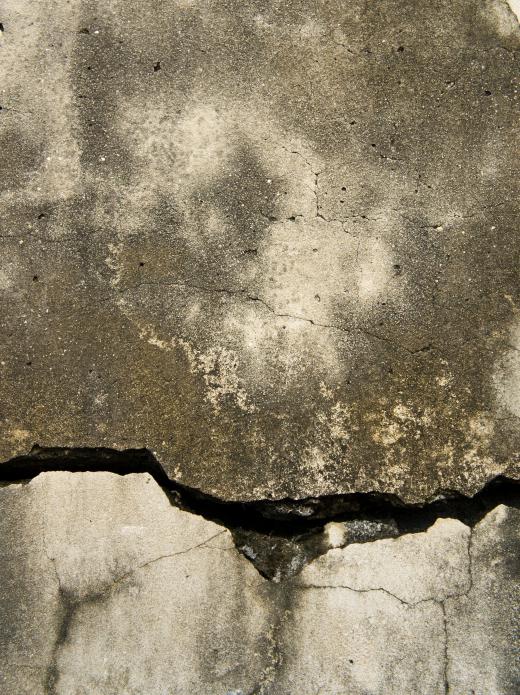Concrete sealer is a compound used to protect concrete from the elements. Concrete is a porous material, and without sealing, it will freely breathe. It will also absorb water, which can lead to a variety of structural and aesthetic problems. Many home supply stores carry sealers for people working on concrete projects at home, and it is also possible to purchase them through contracting suppliers and specialty companies. Concrete should not be left unsealed, except in certain circumstances.
There are two ways in which a concrete sealer can work. Film forming sealers work by creating a barrier in the form of a layer of waterproofing on top of the concrete. As long as the sealer is in good shape, the concrete underneath will stay dry. It is also possible to buy penetrating sealers that soak into the material to waterproof it. Some sealers also include a stain that is used to color the concrete, while others are clear.

The primary difference between these types of sealer has to do with the look of the finish. If a glossy or wet-looking finish is desired, film formers should be used. Matte finishes can be accomplished with penetrating sealers. In both cases, the compound may need to be periodically stripped and reapplied to keep the concrete in good condition. Some signs that it needs to be resealed include staining, scuffing, and increased moisture in the concrete.

Using a concrete sealer prevents water from penetrating the material, reducing the risk of cracks and other types of water damage. Stains are also greatly reduced, which helps to keep floors and other concrete installations looking cleaner. Preventing staining and moisture can discourage the growth of moss, mold, and plants that might use the concrete as a substrate. Sealed concrete also resists chemicals and corrosion, making it useful for kitchens and scientific laboratories.

In outdoor installations like driveways and paths, some people prefer not to use concrete sealer. The breathing properties of unsealed concrete allow water to percolate through, rather than running off, which preserves rainfall, snow melt, and other sources of water. Permeable walkways, driveways, patios, and other outdoor installations help to keep water around the home and garden, which can be useful in regions that are prone to droughts. The unsealed concrete, however, will tend to break down more quickly, so it may need to be replaced more often.
Ever since she began contributing to the site several years ago, Mary has embraced the exciting challenge of being a About Mechanics researcher and writer. Mary has a liberal arts degree from Goddard College and spends her free time reading, cooking, and exploring the great outdoors.

